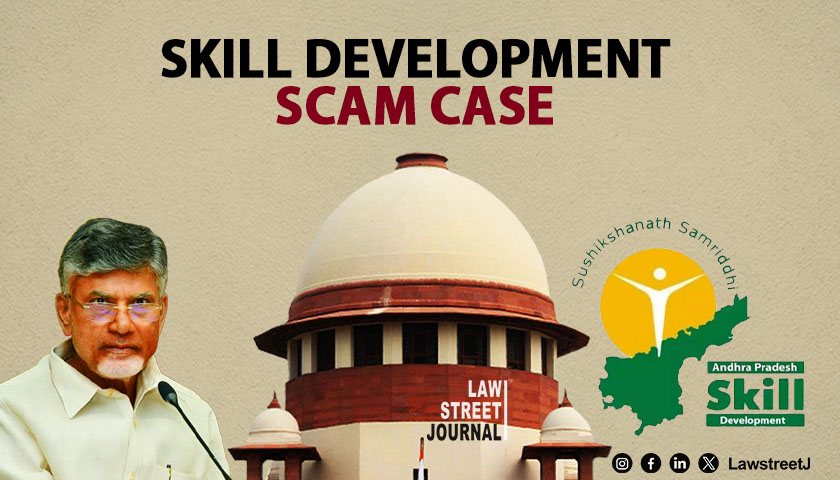New Delhi: Refusing to consider former Andhra Pradesh Chief Minister Chandrababu Naidu's prayer for interference in the question of his extended police remand, the Supreme Court today posted his petition for quashing of the FIR against him for hearing on Monday.
A bench of Justices Aniruddha Bose and Bela M. Trivedi have issued notice to the State in the matter and sought for production of the entire compilation of documents from the High Court.
Naidu was represented by Sr. Advocates Harish Salve, Abhishek Manu Singhvi, Sidharth Luthra, whereas Sr. Adv. Mukul Rohatgi represented the state of Andhra Pradesh.
While the defense counsels pointed out and sought protection under Section 17A of the Prevention of Corruption Act, which was introduced in 2018, the bench and Sr. Adv. Rohatgi disputed the application of the same in the present case.
Justice Trivedi raised, in her words, "a pure question of law" as to whether the protection granted to public servants under the Section would also be applicable in cases where the FIR also invoked sections of the Indian Penal Code (IPC).
The bench further questioned if Section 17A would still apply if the offence had been committed prior to 2018 when the Amendment was brought in adding the said Section.
On the other hand, Sr. Adv. Rohatgi argued that the question was already settled and Section 17A would not extend to Naidu in the present case.
Section 17A. provides that:
"Enquiry or Inquiry or investigation of offences relatable to recommendations made or decision taken by public servant in discharge of official functions or duties.-- No police officer shall conduct any enquiry or inquiry or investigation into any offence alleged to have been committed by a public servant under this Act, where the alleged offence is relatable to any recommendation made or decision taken by such public servant in discharge of his official functions or duties, without the previous approval--
(a) in the case of a person who is or was employed, at the time when the offence was alleged to have been committed, in connection with the affairs of the Union, of that Government;
(b) in the case of a person who is or was employed, at the time when the offence was alleged to have been committed, in connection with the affairs of a State, of that Government;
(c) in the case of any other person, of the authority competent to remove him from his office, at the time when the offence was alleged to have been committed:
Provided that no such approval shall be necessary for cases involving arrest of a person on the spot on the charge of accepting or attempting to accept any undue advantage for himself or for any other person:
Provided further that the concerned authority shall convey its decision under this section within a period of three months, which may, for reasons to be recorded in writing by such authority, be extended by a further period of one month."
In response, Naidu argued that Section 17A is applicable according to the date when the enquiry starts, even if the offences themselves are committed prior to 2018.
Sr. Adv. Abhishek Manu Singhvi supplemented this stating that, as per the remand report itself, the transactions had spread from 2015-19, so there was an "overlap of at least one year, (with introduction of S. 17A)."
The State countered this stating that the inquiry had started before 2018.
Issuing notice in the matter, the Supreme Court has directed the State of Andhra Pradesh to produce the compilation of documents submitted before the High Court in the matter. The matter will next be taken up on October 9.










